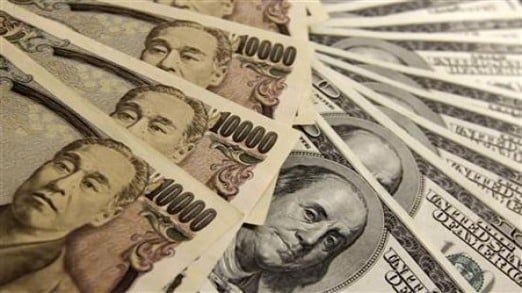
Even as Pakistan’s foreign currency reserves hit a 12-year low and banks scrimp on sharing dollars with foreign exchange companies, the federal government has failed to craft a policy response to the deepening crisis which may now engulf capital markets.
Despite the urgency to plug loopholes in monetary and fiscal policies, the federal government seems in no hurry to call a long overdue meeting of the Monetary and Fiscal Policies Coordination Board (MFPCB) – the statutory body which has the mandate to review monetary, fiscal and trade policies, and create a link between them.
The board is chaired by the finance minister and comprises the commerce minister, deputy chairman of the Planning Commission, the governor of the State Bank Governor Yaseen Anwar and the finance secretary.

The monetary policy is closely linked with the country’s fiscal policy. Rapid developments in the monetary and financial markets have intensified the urgency for calling a meeting of the coordination board, according to analysts.
The Pakistan Muslim League-Nawaz government was supposed to call the first meeting of the coordination board immediately after forming the cabinet and presenting the budget before parliament.
The State Bank of Pakistan (SBP) Act of 1956 makes its binding for the finance ministry to call a meeting of the MFPCB every quarter.
The meeting was due again in September. The last such meeting was held in January.
Despite being in the International Monetary Fund programme, the country’s official foreign exchange reserves plunged to $3.463 billion on November 22, the lowest level in almost 12 years, according to the SBP. Although, the SBP has yet to declare the reserves position for this week, Pakistan made another payment of $396 million to the IMF on November 26, which have brought the reserves below even the $3 billion mark.
When contacted, the spokesman for the Ministry of Finance Rana Assad Amin said the MFPCB meeting was delayed because the government was reconstituting the board. It remains to be seen, however, if the government will amend the SBP act to do so – the members of the board have been defined by the law.
Due to fast depleting reserves, commercial banks have already refused to give dollars to foreign exchange companies. In retaliation, the exchange companies observed a token strike and threatened to go on indefinite strike.
This forced the Ministry of Finance to ask SBP to respond to the crisis –a task the bank should have performed without a reminder from the federal government.
“There is no currency crisis in the country… only dollar notes are unavailable”, said SBP Governor Yaseen Anwar while interacting with reporters at the Prime Minister’s Office on Thursday. He shrugged off concerns that the country’s foreign exchange reserves were vulnerable.
Due to SBP’s administrative weaknesses and slowing foreign assistance, rupee-dollar parity touched the Rs109 a dollar mark in the interbank market on Friday and was recorded at Rs110.60 a dollar in the open market.
According to market players, if the government does not promptly address the situation, foreign investors may be compelled to withdraw their portfolio investment, which is estimated to be in the range of $3 billion to $3.5 billion.
The SBP has also failed to bring all export receipts in the country, which also adversely affects the reserves position, according to sources. Exporters are retaining a significant chunk of their receipts abroad, they added.
IMF has also asked SBP to bring Net International Reserves at negative $2.1 billion by December, from the end of September net level of negative $3.1 billion, according to sources. This requires coordinated efforts on part of both the bank and the finance ministry.
Published in The Express Tribune, December 1st, 2013.




1719660634-1/BeFunky-collage-nicole-(1)1719660634-1-165x106.webp)












COMMENTS
Comments are moderated and generally will be posted if they are on-topic and not abusive.
For more information, please see our Comments FAQ